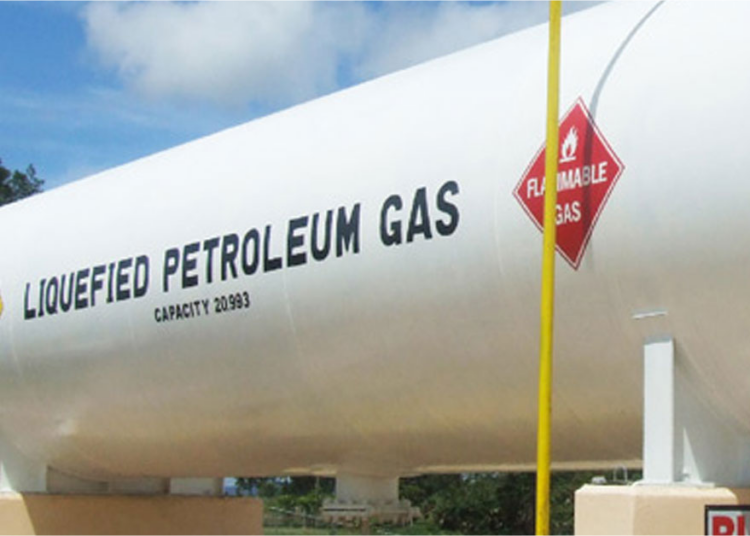The crisis between Ogbeani community workers and the management of Liquefied Petroleum Gas (LPG), Kwale, Ndokwa West local government area of the state has taken a dangerous turn.
This may be linked to the workers’ Save-Our-Souls request to Governor Sheriff Oborevwori and security agencies, which prompted the LPG management, in collusion with some community leaders, to consider dismissing the workers’ representatives.
According to Mr Courageous Ozor, chairman, Mr Ikumi Christopher, PRO, Mr Enemuwe Peter, secretary, and Mr Aninwe Edward, treasurer, representatives of the community workers in the company, their demand is simply to receive employment letters specifying the terms and conditions of service and to improve their welfare like others.
“It is also our brief that the company is going against the Memorandum of Understanding (MOU) signed with the people of Ogbeani and the provisions of the Local Content Act currently in force in Nigeria as it relates to the welfare of community workers in the company,” they said.
Facts revealed that among oil companies in the area, such as Agip, NEXT, and Midwestern, LPG has the worst payment package. Till date, some workers earn as little as ₦100,000 per month, while temporary workers are paid as little as ₦80,000 and below, in direct violation of Nigeria’s labour rules and the Minimum Wage Act.
Some of the workers revealed that payments are not made on time, or as scheduled, adding that as of 9th February 2025, some of them had not been paid for December 2024 and January 2025.
“Management is responsible for this. You won’t get paid regularly, especially if you honourably submit your resignation letter before the end of the month. You will never receive your salary for that month or any other outstanding pay,” the source stated.
Comrade Onyeka Nwoko, former group chairman of the National Union of Petroleum and Natural Gas (NUPENG), SPCOO branch, described the situation as unfortunate, against labour law, wrong, and deplorable.
According to him, it was his first time seeing people working for several years before receiving a document specifying their conditions of service. He said, ordinarily, the conditions of service should have been outlined before being engaged, but the reverse has been the case at LPG.
While criticising the community leaders, he reminded them of the agreed Memorandum of Understanding (MOU) between the company and the community before it began operations, specifying job slots and the non-casualisation of workers from the community.
He disclosed that, in some instances, the community leaders had betrayed their people to ensure the matter remains unresolved.
He recalled that the matter had been addressed by the Federal Ministry of Labour, which directed that the workers should be given ‘Offer Letters’ when Dr Chris Ngige was the minister.
On the threat to dismiss the workers’ leaders for demanding better welfare packages, Nwoko said if that happens, they would take their protest to the Delta State government to call the company to order.
“When injustice becomes law, resistance becomes workers’ right. They should not be violent nor take the law into their own hands. Other companies around offer good conditions of service, why is LPG different?
“Why should someone be enslaved to that extent? Is it that there is no law in the country, or is it because of unemployment? When I was the group chairman, we attended so many burials of workers because there was no time off for them. They worked and collapsed. Does that mean the company should use the little it offers us to kill us?”
Corroborating this, the chairman of the Community Development Committee (CDC), Chief Daniel Ogu, said the company was full of tricks. He stated that the implications of engaging workers for years without an employment letter is casualisation, and this is why they are pressuring the firm to address the issue.
He said the community was not comfortable with the management’s excuse to retrench workers and give appointment letters to only a few that will be reinstated as the project reaches its end. He suggested that, instead of dismissing or retrenching people, they should consider posting them to other branches.
“The government too does not want to agree with us on this matter, saying employers have the right to retrench casual workers at any time. But we said the company too should adhere to the agreement with the community: pay them in accordance with the terms of six months up to the time of exhaustion.
“We also reminded the company that the community had the right to reinstate anybody in its quota of employment, which is part of the norms outlined in the document between the company and the community,” Ogu said.
In their contributions, Hon. Peter Uviejitobor, commissioner for oil and gas in Delta State, assured that his office would handle the matter once it receives a directive from the governor, while the Delta Attorney-General and Commissioner for Justice, Mr. Ekemejero Ohwovoriole, revealed that Governor Oborevwori had asked his ministry to handle the crisis, adding that he would only respond to inquiries after verifying the situation.
Chairman of the Community Accredited Contact Committee (CACC), Prince Ezute Osale, declined to comment on the matter. However, Chief Lucky Ojumah, the Community Liaison Officer (CLO) for LPG, when contacted, said he would need to make consultations since the matter was already being handled by the state government.
Our correspondent reports that the Ogbeani community workers are living in fear of the unknown, particularly from the mistreatment they are experiencing at the hands of the company’s management.





